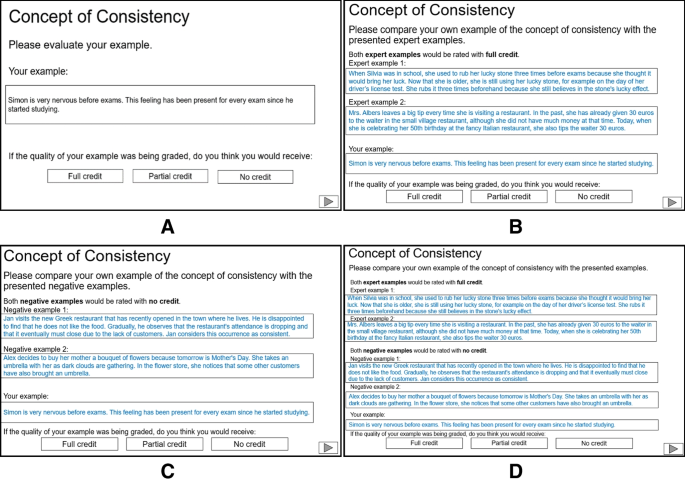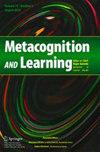专家范例而非负面范例标准有助于学习者准确地评估自生成范例的质量
IF 4.8
2区 教育学
Q1 EDUCATION & EDUCATIONAL RESEARCH
引用次数: 1
摘要
本文章由计算机程序翻译,如有差异,请以英文原文为准。

Expert example but not negative example standards help learners accurately evaluate the quality of self-generated examples
求助全文
通过发布文献求助,成功后即可免费获取论文全文。
去求助
来源期刊

Metacognition and Learning
Multiple-
CiteScore
6.20
自引率
15.20%
发文量
39
期刊介绍:
The journal "Metacognition and Learning" addresses various components of metacognition, such as metacognitive awareness, experiences, knowledge, and executive skills.
Both general metacognition as well as domain-specific metacognitions in various task domains (mathematics, physics, reading, writing etc.) are considered. Papers may address fundamental theoretical issues, measurement issues regarding both quantitative and qualitative methods, as well as empirical studies about individual differences in metacognition, relations with other learner characteristics and learning strategies, developmental issues, the training of metacognition components in learning, and the teacher’s role in metacognition training. Studies highlighting the role of metacognition in self- or co-regulated learning as well as its relations with motivation and affect are also welcomed.
Submitted papers are judged on theoretical relevance, methodological thoroughness, and appeal to an international audience. The journal aims for a high academic standard with relevance to the field of educational practices.
One restriction is that papers should pertain to the role of metacognition in learning situations. Self-regulation in clinical settings, such as coping with phobia or anxiety outside learning situations, is beyond the scope of the journal.
 求助内容:
求助内容: 应助结果提醒方式:
应助结果提醒方式:


